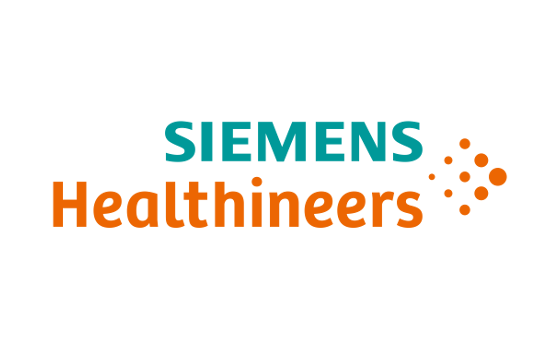 Siemens Healthineers and UC San Francisco have formed a research and innovation-driven collaboration to make radiological imaging greener, while improving access to and quality of radiological imaging in Northern California. The agreement will also explore artificial intelligence in radiology, clinical data and image integration, and quantitative imaging.
Siemens Healthineers and UC San Francisco have formed a research and innovation-driven collaboration to make radiological imaging greener, while improving access to and quality of radiological imaging in Northern California. The agreement will also explore artificial intelligence in radiology, clinical data and image integration, and quantitative imaging.
The first key area of innovation, Green Radiology, will include the creation of a first-in-the-world carbon-neutral radiology imaging service at UCSF. This collaboration - between UCSF, Siemens Smart Infrastructure, Siemens USA, and Siemens Healthineers - will monitor power consumption of radiology equipment at UCSF using Siemens Smart Infrastructure solutions.
In addition, the collaboration will leverage new Siemens scanner technology that is greener, lighter, smaller, and has easier siting requirements, so that more patients can access high-quality imaging without traveling long distances. Siemens Healthineers and UCSF also will explore ways to reduce standby energy consumption of MR scanners and the potential for Siemens Healthineers turn-key solutions for eco-friendly scanners.
"Health care is estimated to be responsible for up to 5% of global net emissions, and imaging almost certainly contributes to an outsized share of that total," said Christopher P. Hess, MD, PhD, Professor and Chair of the UCSF Department of Radiology & Biomedical Imaging. "At the same time, imaging is becoming increasingly central to medical decision-making. Our goal is to find a way for radiology departments worldwide to reduce our environmental footprint. I can think of no better place than UCSF to begin the pioneering work."
The reduced power consumption from these measures also will allow UCSF to use renewable energy certificates to achieve the goal of a carbon-neutral imaging fleet.
A second key area of the agreement will improve access to high-quality radiological imaging in Northern California by combining UCSF‘s expertise in clinical applications and artificial intelligence (AI), and Siemens Healthineers expertise in AI and technology development.
The agreement will leverage Siemens Healthineers‘ latest advancements in clinical MRI technologies including the new MAGNETOM Free.Max (0.55T) MRI scanner, which uses far less helium than typical scanners, thus significantly impacting helium’s and the MRI industry’s sustainability. The combined expertise of Siemens Healthineers and UCSF with this new platform offers the promise of making advanced MRI technology more accessible to patients in Northern California.
"The current practice of radiology requires that patients travel to advanced imaging resources like MRI scanners; now we can bring imaging closer to our patients," Dr. Hess said. "Mid-field MRI scanners leveraging artificial intelligence will help to expand access to advanced imaging. They use less space, less power, and less helium, offering an exciting opportunity to reduce radiology's impact on climate change. UCSF is a global leader in clinical care and imaging research, and we are proud to work alongside our industry partners in this nascent concept of Green Radiology."
"Siemens Healthineers is very excited about the innovation partnership with UCSF to bring MRI to places it has never been before, advancing the access and quality of radiological imaging in Northern California, while simultaneously working towards sustainable, eco-friendly healthcare," said David Pacitti, President and Head of the Americas, Siemens Healthineers.
About Siemens Healthineers
Siemens Healthineers AG (listed in Frankfurt, Germany: SHL) is shaping the future of healthcare. As a leading medical technology company headquartered in Erlangen, Germany, Siemens Healthineers enables healthcare providers worldwide through its regional companies to increase value by empowering them on their journey towards expanding precision medicine, transforming care delivery, improving the patient experience, and digitalizing healthcare. Siemens Healthineers is continuously developing its product and service portfolio, with AI-supported applications and digital offerings that play an increasingly important role in the next generation of medical technology. These new applications will enhance the company’s foundation in in-vitro diagnostics, image-guided therapy, and in-vivo diagnostics. Siemens Healthineers also provides a range of services and solutions to enhance healthcare providers’ ability to provide high-quality, efficient care to patients. In fiscal 2021, which ended on September 30, 2021, Siemens Healthineers, which has approximately 66,000 employees worldwide, generated revenue of €18.0 billion and adjusted EBIT of €3.1 billion.
About the MAGNETOM Free.Max (0.55T) MRI scanner
The first and only 80 cm wide-bore MRI system available in the market and the company’s smallest, most lightweight scanner, MAGNETOM Free.Max combines a mid-field strength magnet with the latest deep learning-based AI technologies to simplify operations and enhance imaging performance, all while broadening the range of clinical applications. The sealed-for-life system design uses less than 1 liter of helium, thus making a significant impact on helium’s and the MRI industry’s sustainability. The MAGNETOM Free.Max scanner features a smaller footprint, reduced weight, and overall easier siting requirements, making it possible to install MRI in more locations.
About UC San Francisco (UCSF)
UCSF is exclusively focused on the health sciences and is dedicated to promoting health worldwide through advanced biomedical research, graduate-level education in the life sciences and health professions, and excellence in patient care. UCSF Health, which serves as UCSF's primary academic medical center, includes top-ranked specialty hospitals and other clinical programs, and has affiliations throughout the Bay Area.